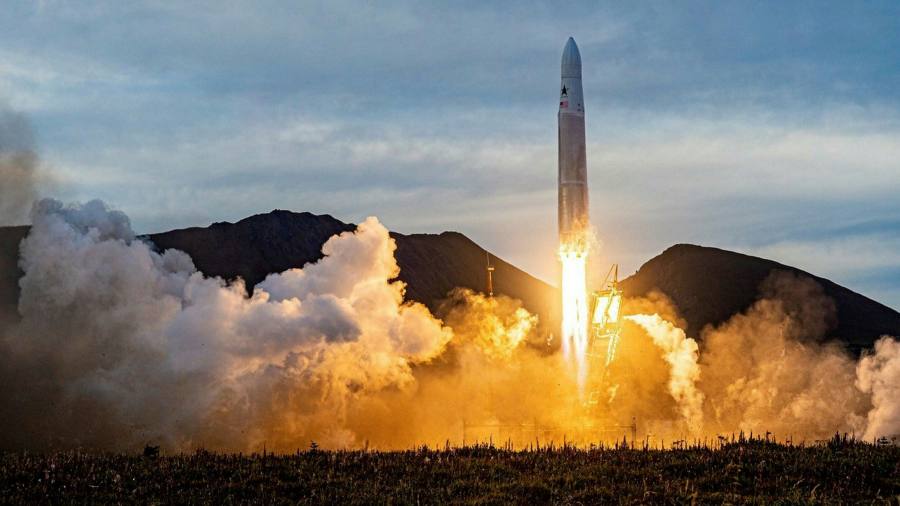[ad_1]
Astra, a space start-up backed by Marc Benioff of Salesforce and Eric Schmidt, former Google chief executive, plans to go public next quarter through the special purpose acquisition company (Spac) Holicity.
The four-year-old Californian company will raise up to $500m through the deal, including up to $300m from Holicity and $200m from BlackRock and others, and be valued at approximately $2.1bn.
The deal comes at a time of heightened interest in both Spacs and commercial space companies, an industry whose revenue is projected to almost triple to $1tn by 2040, according to Morgan Stanley.
Elon Musk’s rocket company SpaceX is expected to be valued at more than $60bn in a funding round later this month while the share price of Virgin Galactic, Richard Branson’s space tourism company, has climbed 200 per cent since September.
Ark Invest, an asset manager focused on disruptive tech, filed a preliminary prospectus last month for a space exploration fund, as “rocket and satellite cost declines are upending what once seemed a monopolistic and bureaucratic industryâ€.
Astra, which said it already had contracts from more than a dozen companies and governments, representing $150m of revenue, offers low-cost rocket launches and said it would begin sending satellites into low earth orbit later this year.
“We’ll be launching monthly in late 2021, weekly by 2023, biweekly in 2024, daily by 2025,†said its chief executive and co-founder Chris Kemp to the Financial Times.
Astra’s team of about 100 employees launched its first rocket into space from Alaska in mid-December. Although it fell short of reaching orbit, the company is one of a handful to reach space after SpaceX in 2008 and start-up Rocket Lab in 2018. Virgin Orbit, a small satellite launch service distinct from Virgin Galactic, went a step further than Astra last month by reaching low orbit and deploying 10 satellites.
Astra’s goal is to launch hundreds of low-cost satellites on behalf of clients who want to beam down broadband internet, connect “the internet of thingsâ€, enable photography and assist in national security. Among its contracts is a deal with the US Space Force to develop the capability of launching a drone into space — where it can travel 25,000 miles per hour — and have it land anywhere else on Earth in under 45 minutes.
“We are mass-producing the rocket at a cost of about a 10th of anyone else,†Mr Kemp said. “Virgin has to fly a 747 with people on it and they’re currently charging $12.5m for a flight — we’re currently charging $3m. So we’re four times cheaper than Virgin, and we’re three times cheaper than Rocket Lab.â€
Mr Kemp is a serial entrepreneur who spent about five years at Nasa, rising to chief technology officer in 2010, before he co-founded OpenStack, a platform for cloud computing. He also spent eight years as an adviser to Planet, the California company that has hundreds of satellites in space capturing daily images of the Earth’s surface.
Holicity, the blank cheque company merging with Astra, was founded a year ago by Craig McCaw, a billionaire entrepreneur with a background in cellular networks.
Mr McCaw said he had been attracted by “Astra’s ruthlessly simple platform idea†and its “incredibly quick ability to deployâ€. Astra was happy to cede giant rocket launches to SpaceX, he said, and would instead focus on smaller satellite launches that can offer companies “a suite of services†in space.
Upon closure of the deal, Astra will be the first space company to trade on the Nasdaq, under the ticker ASTR. The deal is expected to close in the second quarter, with Astra’s existing shareholders owning 78 per cent of the company.
[ad_2]
Source link





